2022 APCCMPD Annual Conference

APCCMPD AWARDS PROGRAM
Abstract Awards
APCCMPD AWARD FOR MEDICAL EDUCATION RESEARCH
|
The APCCMPD Award for Medical Education Research recognizes pulmonary, critical care, and pulmonary/critical care medicine Training Program Directors, Associate Program Directors, Key Clinical Faculty, and Fellows-in-Training for their outstanding contributions and commitment to medical education research. The recipient is selected for conducting innovative research focused on undergraduate or graduate medical education in pulmonary, critical care, and pulmonary/critical care medicine.
|
Congratulations to the 2022 awardee:

Christopher Ghiathi, MD
University of Pennsylvania
Fellows’ Experience and Perceptions of Airway Management Training Within Pulmonary and Critical Care Fellowship
The APCCMPD honors the contributions of all 2022 applicants:
Christine Nguyen, DO
Icahn School of Medicine at Mount Sinai Morningside
Engaging Physician Trainees Through Bedside Intensive Care Unit (ICU) Narratives
Deepak Pradhan, MD
New York University Grossman School of Medicine
Point-of-Care Ultrasound Competency of NYU Pulmonary/Critical Care Medicine Fellows Over the Last Six Years
|
| |
2022 AWARDEE
Fellows’ Experience and Perceptions of Airway Management Training Within Pulmonary and Critical Care Fellowship |
|
Christopher Ghiathi, MD
Anthony R. Lanfranco, MD, MSEd
Maryl Kreider, MD, MSCE
Janae K. Heath, MD, MSCE
University of Pennsylvania
|
 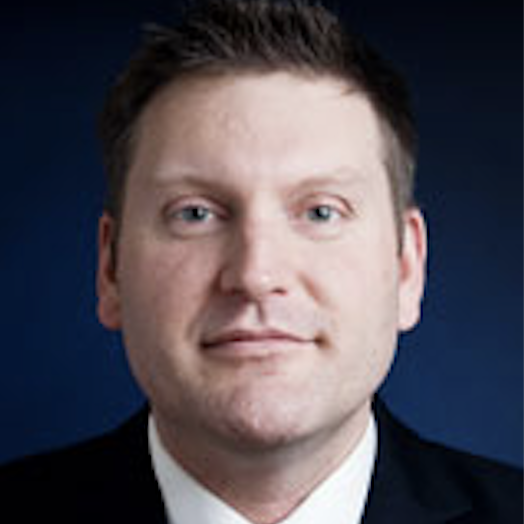 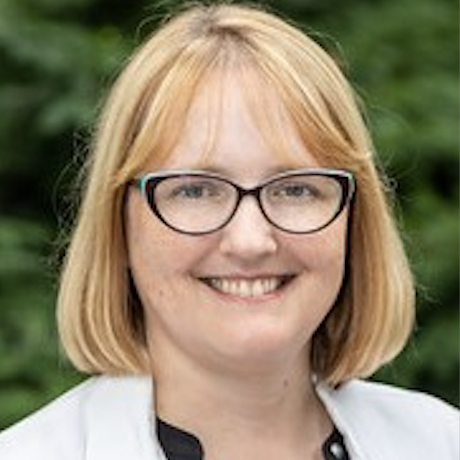 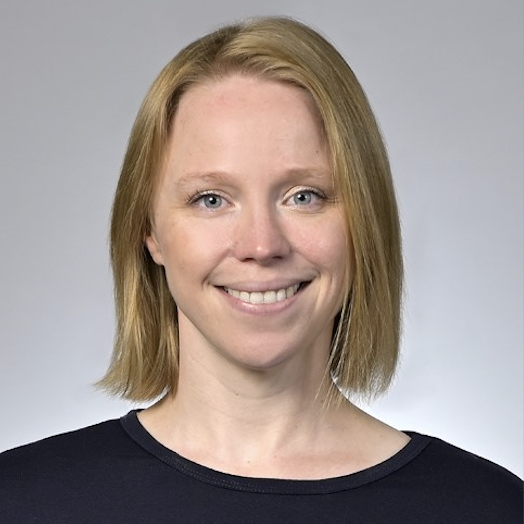 |
|
BACKGROUND
There is significant variability in airway management training among Pulmonary and Critical Care Medicine (PCCM) fellows, particularly in regards to who is the primary operator (anesthesiology versus PCCM).(1) The role of the institutional approach to intubations (anesthesia-predominant primary operators versus PCCM-predominant) to the overall fellows’ educational experience has not been thoroughly evaluated. Our objective was to assess the experiences of PCCM fellows based on institutional approach to intubations (anesthesia-predominant primary operators versus PCCM-predominant).
METHODS
We performed a survey to assess the perceptions of airway management training in PCCM fellowships. We surveyed PCCM fellows at 14 institutions purposely selected to capture representation across diverse geographic regions, fellowship sizes, and distinct institutional approaches to airway management. Summary statistics were used to analyze the Likert-scale responses. Based on our hypothesis of a relationship between institutional approaches to intubations and fellow’s educational experience, we stratified responses based on whether the primary operator for airway management for critically ill patients was generally anesthesiology or PCCM. Statistical significance was determined using either t-testing (after converting several Likert-style responses to continuous variables) or ANOVA for categorical variables (p<0.05).
RESULTS
A total of 133 fellows across 14 PCCM programs (47% response rate) completed the survey. Respondents were predominantly from academic medical centers (83%, n=109), spanning all fellowship years (29% in 1st-year [n=38], 31% in 2nd-year [n=41], 26% in 3rd-/4th-year [n=34]). The majority of respondents (n=104, 88%) strongly agreed that airway management is an important skillset for their future career, which did not differ based on year in training or career trajectory (research-focused or clinical-focused). Seventy percent (n=80) of fellows were very or somewhat satisfied with their airway management training. In fellows training within institutions that are anesthesia-predominant for airway management (29% [n=34]), satisfaction with training was significantly lower compared to other programs, as was the self-assessment of one’s airway management skills (Table 1). The location of airway management experience in anesthesia-predominant programs was mainly the operating room (69% [n=22]), versus mainly in the intensive care unit for PCCM-predominant programs (94% [n=77]). The number of completed intubations was lower for those in anesthesia-predominant programs than PCCM-predominant (p 0.02).
CONCLUSION
Our study demonstrates there are significant differences in fellows’ experiences in airway management based on institutional approach to intubations. This highlights the need for a robust, standardized educational approach in airway management, particularly at programs where anesthesia involvement limits the amount of clinical exposure.
REFERENCE
- Brady AK, et al. Variation in Intensive Care Unit Intubation Practices in Pulmonary Critical Care Medicine Fellowship. ATS Sch. 2020 Dec;1(4):395-405.
|
| |
| Engaging Physician Trainees Through Bedside Intensive Care Unit (ICU) Narratives |
|
Christine Nguyen, DO
Alexander Davidovich, DO
Jonathan Stoever, MD
Deep Patadia, MD, MPH
Hailey Gupta, MD
Valeria Santibanez, MD
Jessica Montanaro, MSN, RN
Beverly Smith
Janet Shapiro, MD
E. Mirna Mohanraj, MD
Ichan School of Medicine at Mount Sinai Morningside
|
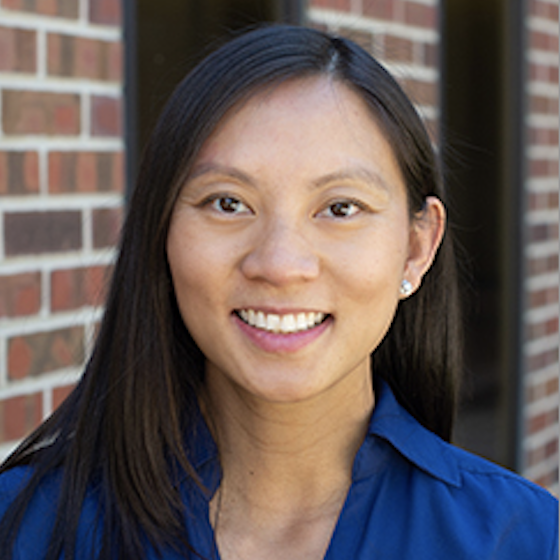  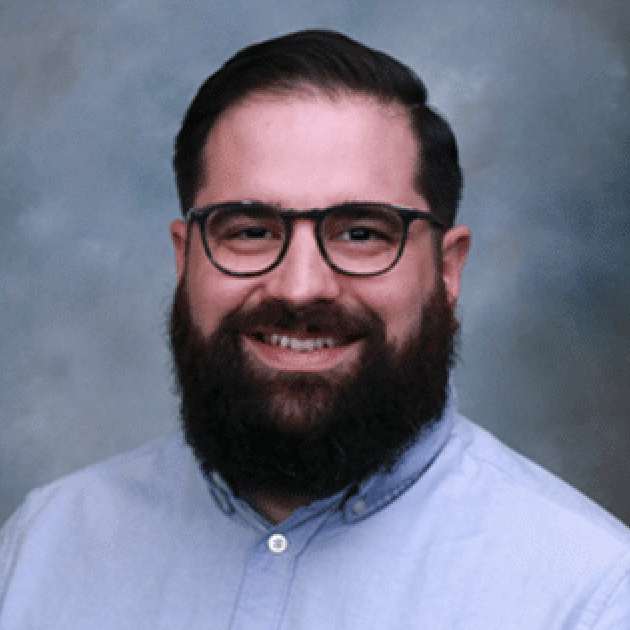 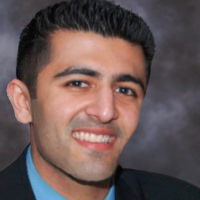
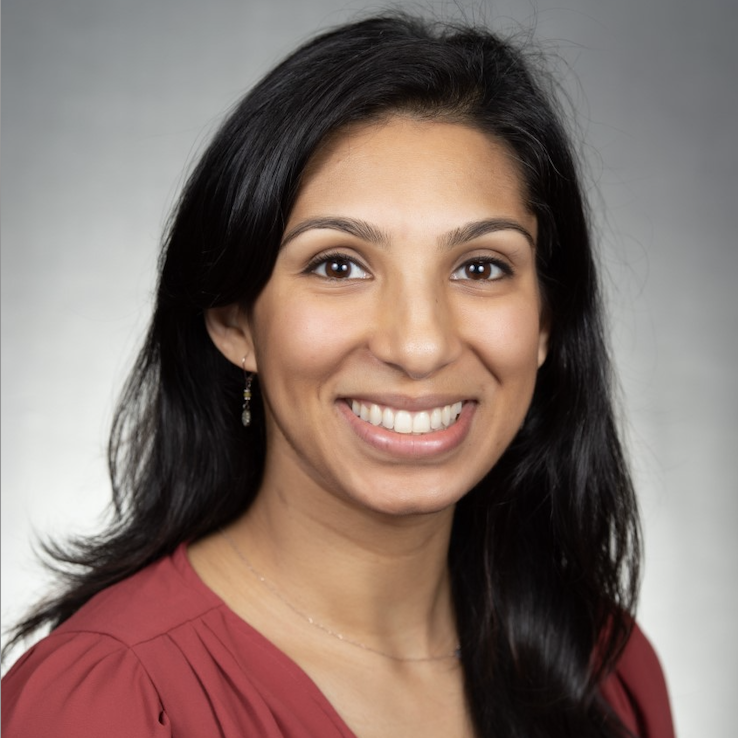 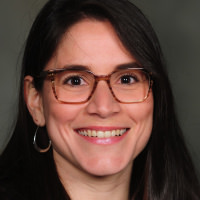  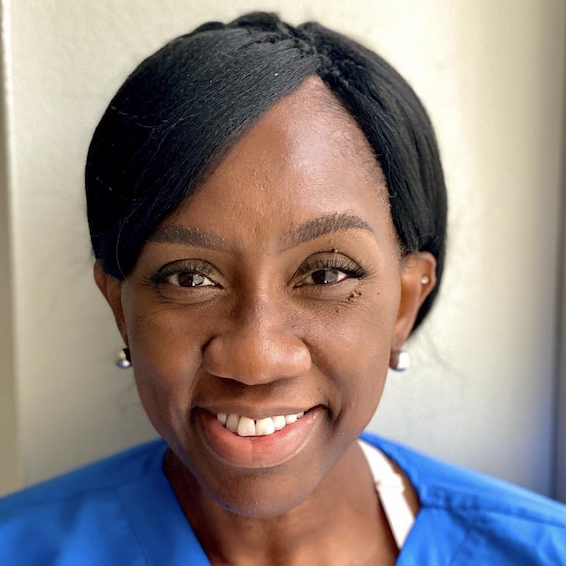
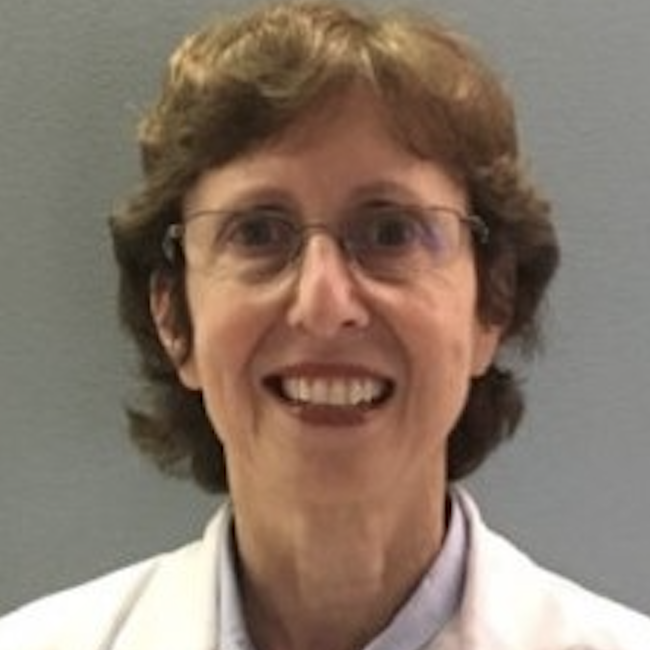 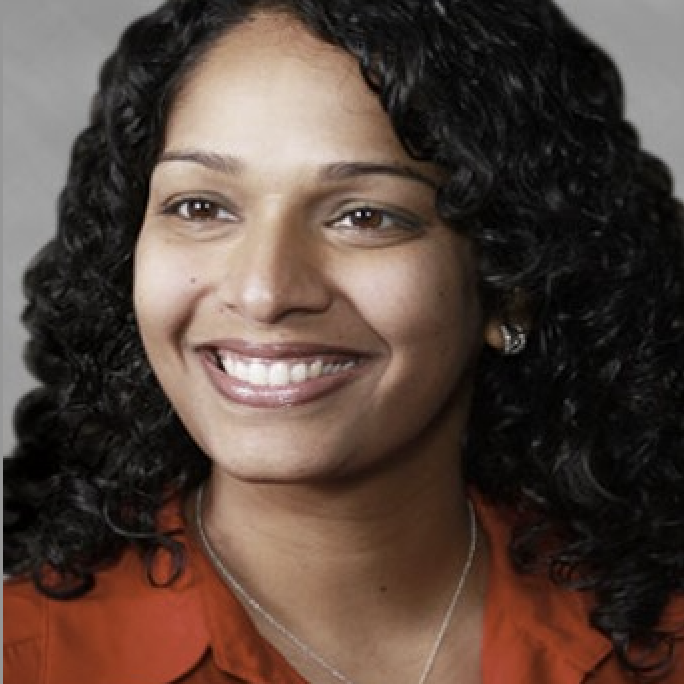
|
|
BACKGROUND
Physicians in the ICU treat patients with complex diseases in a stressful environment. Recent attention has focused on improving patient- and family-centered care(1), but ICUs remain loci for dehumanization(2). The marked increase in patient isolation and physician stress due to the COVID-19 pandemic dramatically increase the dehumanizing effect. A key guardian against the dehumanization of patients is the empathic physician. However, there are many barriers to providing humanistic care including high workload, non-communicative patients, and physician burnout(3), which can result in empathy erosion and decreased sense of fulfillment. Narrative medicine interventions have been proposed as models to improve humane medical practice(4). We implemented a novel narrative medicine intervention designed to reinvigorate the physician-patient relationship, improve the practice of humanistic care, and increase the sense of meaning derived from work. The study authors aimed to 1) institute a standardized narrative medicine practice to elicit and share biographic and social background information for critically ill patients with the medical team. In doing so, the authors endeavored to 2) humanize the ICU patient experience and to 3) foster a deeper sense of meaning and fulfillment for physician trainees in the ICU. The authors 4) assessed the impact of sharing patient biographies on the attitudes and experiences of physician trainees in the ICU.
METHODS
IRB approval was obtained. The study was designed and conducted by Pulmonary and Critical Care Fellows. The authors designed a biographical questionnaire to elicit patient characteristics: relationships, accomplishments, values, interests, and personal traits (Image 1). Patients in the Mount Sinai Morningside ICU (NY, NY) with anticipated stay greater than 48 hours were enrolled. Patients or a surrogate provided questionnaire responses and patient photographs, which were shared on daily inter-professional rounds and posted in the patient’s room. To study intervention impact on physicians, residents in the ICU were consented for enrollment. After 2 to 4 weeks of exposure to the intervention, resident physicians participated in semi-structured interviews and completed an internally validated questionnaire to elicit their demographics, attitudes, and experiences. Study authors performed an iterative qualitative analysis of interview transcriptions and generated five thematic categories of responses.
RESULTS
The study was conducted in a New York City academic hospital during the second surge of COVID-19. Over eight weeks, 20 patient biographies were completed and shared. Twenty-nine resident physicians were enrolled: 17 were training in internal medicine, 12 were training in emergency medicine; 59% were male, 41% were female, 41% were PGY1, 14% were PGY2, and 41% were PGY3. Post-intervention, residents agreed or strongly agreed with the following: 59% spent more time eliciting personal information; 72% spent additional time at the bedside; 93% reported improved rapport with surrogate; 69% felt more enthusiasm for ICU care; 83% reported increased meaning from work. Residents also reported increased sense of responsibility for patient welfare (55%), additional time spent with surrogates (52%), and a compulsion to monitor patient progress beyond routine duties (59%). The five thematic categories with representative comments are detailed in Table 1. The majority of residents indicated that the intervention was fun and worthwhile, with only minimal interruption to ICU rounds.
CONCLUSION
Sharing patient biographies may help to overcome barriers limiting humanistic care in the ICU. Post-intervention, residents spent more time with patients, developed easier rapport with surrogates, and derived more meaning from work. Residents perceived the intervention as humanizing and felt that learning patient biographies may positively impact delivery of care. Emotional responses were perceived as helpful and challenging, which may mitigate physician burnout, improve ICU moral climate, and enhance fulfillment from work. Humanizing the ICU likely had a more profound impact given extreme patient isolation and physician stressors due to COVID-19. Sample size limits statistical analyses. Results may be skewed by recall bias, self-report bias, and resident eagerness to provide positive feedback. The intervention is feasible and easily reproducible. This novel narrative medicine approach rejuvenates opportunities for humanistic medical care, facilitates rapport-building, and increases the meaning derived from work.
REFERENCES
- Wilson ME, Beesley S, Grow A, et al. Humanizing the intensive care unit. Crit Care. 2019 Jan 28;23(1):32.
- Brown SM, Azoulay E, Benoit D, et al. The Practice of Respect in the ICU. Am J Respir Crit Care Med. 2018 Jun 1;197(11):1389-1395.
- Embriaco N, Papazian L, Kentish-Barnes N, et al. Burnout syndrome among critical care healthcare workers. Curr Opin Crit Care. 2007 Oct;13(5):482-8.
- Charon R. The patient-physician relationship. Narrative medicine: a model for empathy, reflection, profession, and trust. JAMA. 2001 Oct 17;286(15):1897-902.
|
| |
| Point-of-Care Ultrasound Competency of NYU Pulmonary/Critical Care Medicine Fellows Over the Last Six Years |
|
Deepak Pradhan, MD
Doreen J. Addrizzo-Harris, MD
New York University Grossman School of Medicine
|
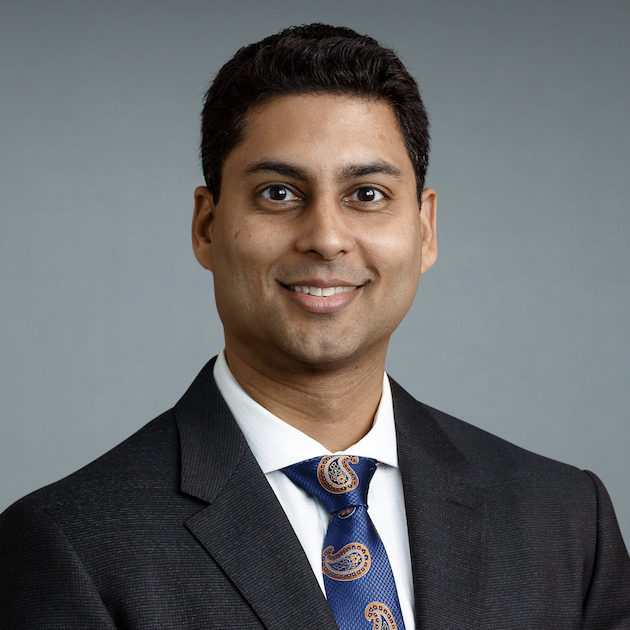 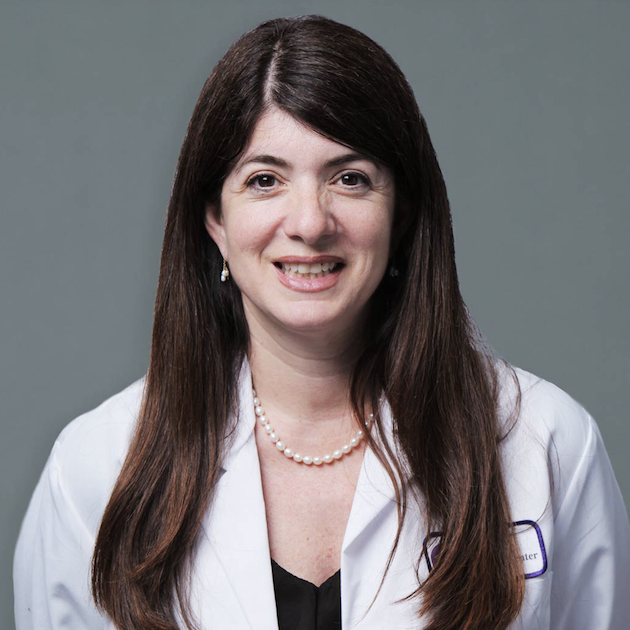
|
|
BACKGROUND
New York University Grossman School of Medicine (NYUGSOM) Pulmonary/Critical Care Medicine (PCCM) fellows complete a comprehensive point-of-care ultrasound (POCUS) curriculum, which includes an introductory boot camp, directly-supervised patient encounters, case-based biweekly ultrasound conference, archival review with feedback, hands-on small group workshops, simulation-based activities, and yearly competency assessment to provide formative feedback to the fellows. In the era of competency-based education, it is important to focus programmatically on not just POCUS content and methods of teaching, but also to assess what learners are actually learning. Over the last several years, how have these fellows performed on these competency assessments? Understanding competency performance can assure trainee readiness for unsupervised performance [entrustability](1) as well as highlight areas for curricular improvement.(2)
METHODS
Retrospective review of fellow performance data on annual POCUS assessments administered at the end of first- and second-year of fellowship for the last six academic years (2016-2021). First-year fellow assessment entails a 25-question multiple choice test (MCT) along with objective structured clinical exams (OSCEs) on five fundamental POCUS examinations (vascular access, vascular diagnostic [DVT study], lung/pleural, focused cardiac, and abdominal) using healthy volunteers and behavioral checklists (with some published evidence of validity).(3) Second-year fellow assessment entails OSCEs on the same five fundamental POCUS exams, but in the inpatient setting with real patients and real pathology. Of note, the MCT and OSCE checklists have not changed during this time period (allowing for more reliable year-to-year comparisons), and all fellows were adjudicated on the OSCEs by the same faculty assessor (thereby excluding inter-observer variability).
RESULTS
Ninety-seven PCCM fellows completed annual POCUS competency assessments (50 first-year and 47 second-year fellows) during this time period. First-year fellow performance on the annual MCT has remained high with steady slight improvement in mean class score (81%, 81%, 83%, 84%, 86%, 88% over last six years, Figure 1). First-year fellow proficiency on the annual OSCE assessments has greatly increased over the last four years for US-guided vascular access, lung/pleural US, focused cardiac US, and abdominal US (Figure 2). High degree of competency was demonstrated in all 5 POCUS examinations. A minority of first-year fellows are not competent in DVT study performance by the end of their first year of fellowship (25%, 11%, 14%, 25%, 12.5%, 10% over last 6 years). Second-year fellow proficiency on their annual OSCE assessments have remained high for US-guided vascular access and lung/pleural US. In the last several years, proficiency has significantly increased for DVT studies, focused cardiac US, and abdominal US (100% proficiency for all exams in 2021). All second-year fellows demonstrated competence or proficiency in all 5 POCUS OSCEs over the last six years.
CONCLUSION
NYUGSOM first- and second-year PCCM fellows have performed very well on annual MCT and OSCE POCUS competency assessments over the last six years, demonstrating high sustained proficiency in all five POCUS examinations. Programmatically, increased focus on DVT study performance during the first year of fellowship should be considered.
REFERENCES
- Schnobrich DJ, Mathews BK, Trappey BE, Muthyala BK, Olson APJ. Entrusting internal medicine residents to use point of care ultrasound: Towards improved assessment and supervision. Med Teach. 2018 Nov;40(11):1130-1135. doi: 10.1080/0142159X.2018.1457210. Epub 2018 May 23. PMID: 29792102.
- Shumway JM, Harden RM; Association for Medical Education in Europe. AMEE Guide No. 25: The assessment of learning outcomes for the competent and reflective physician. Med Teach. 2003 Nov;25(6):569-84. doi: 10.1080/0142159032000151907. PMID: 15369904.
- Patrawalla P, Eisen LA, Shiloh A, Shah BJ, Savenkov O, Wise W, Evans L, Mayo P, Szyld D. Development and Validation of an Assessment Tool for Competency in Critical Care Ultrasound. J Grad Med Educ. 2015 Dec;7(4):567-73. doi: 10.4300/JGME-D-14-00613.1. PMID: 26692968; PMCID: PMC4675413.
|
APCCMPD AWARD FOR NOVEL MEDICAL EDUCATION IMPLEMENTATION
|
The APCCMPD Award for Novel Medical Education Implementation recognizes pulmonary, critical care, and pulmonary/critical care medicine Training Program Directors, Associate Program Directors, Faculty, and Fellows-in-Training for their outstanding contributions and commitment to fellowship medical education and training. The recipient is selected for development of novel and innovative curricular development in his/her training program.
|
Congratulations to the 2022 awardee:
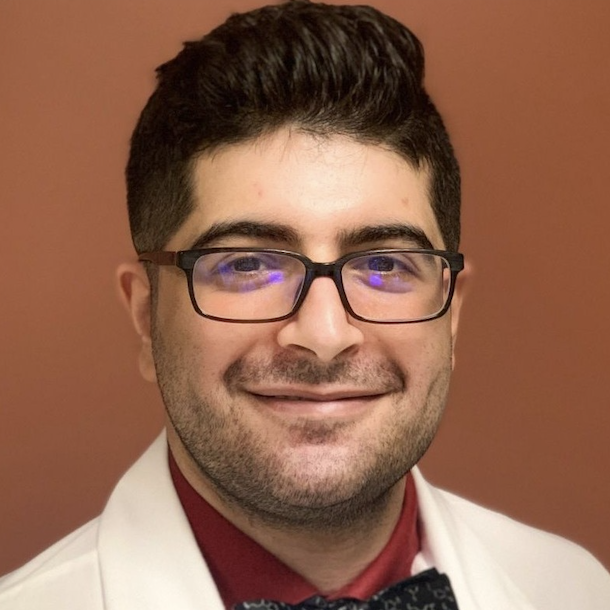
Aryan Shiari, MD
Wayne State School of Medicine
Mechanical Ventilation Training of Pulmonary Critical Care Fellows During the COVID-19 Pandemic
The APCCMPD honors the contributions of all 2022 applicants:
Jennifer D. Duke, MD
Mayo Clinic
Interview Innovations: Creating a Virtual Second Look Day for Applicant
Aanchal Kapoor, MD, MEd
Cleveland Clinic
Quality in Leadership: Utilizing Quality Improvement Training to Teach Leadership Principles
Asad Khan, MD
University of Massachusetts Chan Medical School-Baystate
‘Prepare To Intubate’: A Novel Blended Approach to Airway Management for Fellows
E. Mirna Mohanraj, MD
Icahn School of Medicine at Mount Sinai
Fellows as Educators: Implementation of a Technology-Driven Teaching Scholars Curriculum Pilot
|
| |
2022 AWARDEE
Mechanical Ventilation Training of Pulmonary Critical Care Fellows During the COVID-19 Pandemic
|
|
Aryan Shiari, MD
Abdelaziz Mohamed, MD
Divya Venkat, MD
Sarah J. Lee, MD
Abdulghani Sankari, MD, PhD
Wayne State School of Medicine
|
 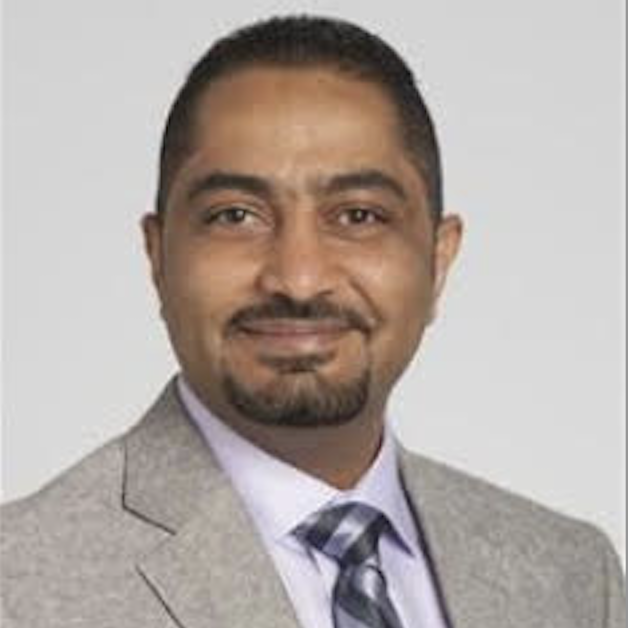 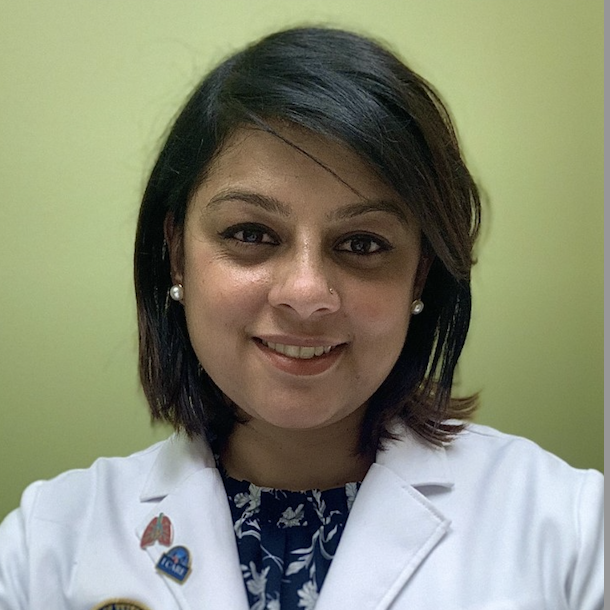
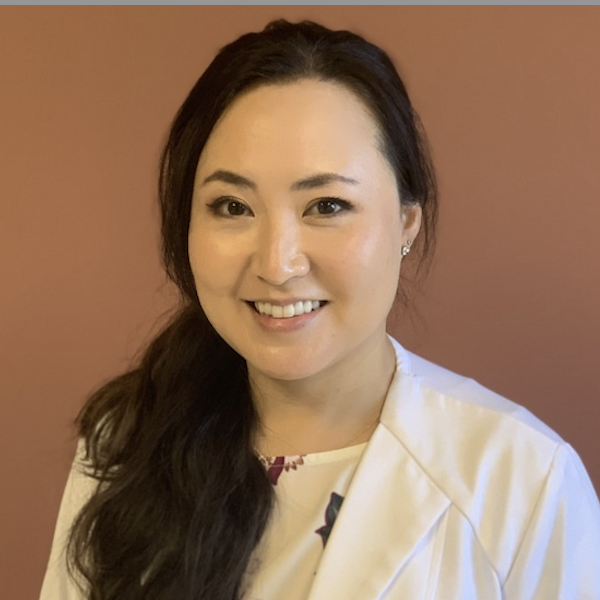 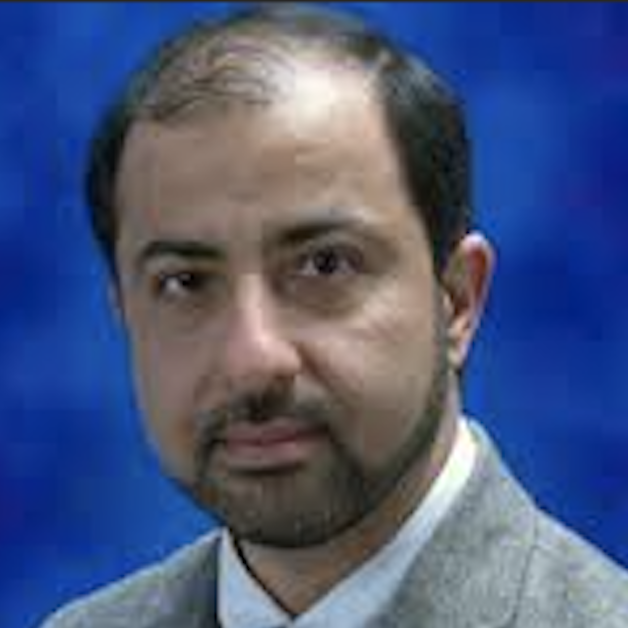
|
| INTRODUCTION
Mechanical ventilation (MV) management is an essential skill expected of Pulmonary and Critical Care Medicine (PCCM) fellows to master during their medical training(1). However, mastery of the competencies required for proficiency is not standardized or tailored to fellowship trainees. The unprecedented emergence of the SARS-CoV-2 pandemic has highlighted the need for advanced operator competency in MV to improve patients’ outcomes; however, there are no standardized MV curricula for rapid mastery(2,3). Our objective is to create a standardized MV curriculum using simulation and evidence-based practices for SARS-CoV-2 disease (COVID-19) for PCCM fellows.
ABSTRACT PRESENTATION
The curriculum targeted new PCCM fellows to assess competency and knowledge in the following key topics: indications for MV, the implementation of rapid sequence intubation for patients with COVID-19, initiating MV and ventilator bundle per best practices, recognizing and directing the management of mucous plugging, ventilator desynchrony, ARDS, auto-PEEP, developing a care plan for proned patients, and adhering to best practices in ventilator liberation. The MV curriculum consisted of the following sequential steps: 1) A baseline written knowledge test consisting of fifteen multiple-choice questions (MCQs), including MV topics and the latest evidence-based practices, and discovered pathophysiology of the COVID-19. Discrimination and difficulty indices were used to narrow to the final fifteen MCQs from a pool of fifty tested on five PCCM attendings and eight PCCM fellows. The internal consistency and reliability were calculated using item-total correlation and Cronbach alpha coefficient. 2) A one-on-one 90-minute session using a high-fidelity simulation manikin (SimMan® 3G), a lung simulator (ASL 5000TM Lung Simulator), and a mechanical ventilator to test baseline competencies within clinical scenarios. 3) A 10-minute structured debriefing session tailored per each fellow’s knowledge gap as determined by a 50-point competency assessment checklist from the simulation. 4) Accumulated running time of 160-minutes of short didactic video modules with remote tracking for completion. 5) A 60-minute hands-on session in small groups of one to three fellows for basic knobology, waveforms, and various modes of MV. 6) A 90-minute one-on-one simulation reassessment session. 7) A written knowledge post-test two weeks from the baseline testing. 8) A post-training confidence survey using a 5-point Likert scale.
DISCUSSION
In July 2021, eight first-year PCCM fellows completed the training. The average MCQ score increased from 7 ± 3 to 10 ± 2 questions (maximum of 15), which equated to a 43% improvement (P<0.05), while the simulation scores improved from 16 ± 4 to 31± 4 (maximum of 50 points) or a 93% improvement (p<0.05) (as shown in Figure 1). Comparing the simulation reassessment to the baseline session, fellows showed statistically significant improvement in simulation-based skills (P<0.05). Specifically, the significant improvement was in ability to assess indications for MV, implementing rapid sequence intubation for patients with COVID-19, initiating MV & ventilator bundle per best practices, recognizing and directing the management of mucous plugging, determining and solving ventilator desynchrony, deploying evidence-based practices for ARDS, and developing a care plan for proned patients. The post-training survey response revealed improved learner confidence in all competencies (see Table 1).
CONCLUSION
Our new MV curriculum using video didactics, hands-on small group sessions, and high-fidelity simulation testing allowed for improvement in knowledge and skills of MV use in PCCM fellows during the pandemic. This was further reinforced by self-reported improvement in confidence in managing MV by first-year PCCM fellows. This new curriculum will need to be validated in another setting with a larger sample size.
REFERENCES
- Dorman T, Angood PB, Angus DC, Clemmer TP, Cohen NH, Durbin CG Jr, Falk JL, Helfaer MA, Haupt MT, Horst HM, Ivy ME, Ognibene FP, Sladen RN, Grenvik AN, Napolitano LM; American College of Critical Care Medicine. Guidelines for critical care medicine training and continuing medical education. Crit Care Med. 2004 Jan;32(1):263-72. doi: 10.1097/01.CCM.0000104916.33769.9A. PMID: 14707590.
- Schroedl CJ, Frogameni A, Barsuk JH, Cohen ER, Sivarajan L, Wayne DB. Impact of Simulation-based Mastery Learning on Resident Skill Managing Mechanical Ventilators. ATS Sch. 2020;2(1):34-48. Published 2020 Dec 23. doi:10.34197/ats-scholar.2020-0023OC
- Ramar K, De Moraes AG, Selim B, Holets S, Oeckler R. Effectiveness of hands-on tutoring and guided self-directed learning versus self-directed learning alone to educate critical care fellows on mechanical ventilation - a pilot project. Med Educ Online. 2016; 21:32727. Published 2016 Sep 29. doi:10.3402/meo. v21.32727
|
| |
| Interview Innovations: Creating a Virtual Second Look Day for Applicant |
|
Jennifer D. Duke, MD
Kathryn del Valle, MD
Morgan Hammel
Jacob Ninan, MD
Rick Koubek, MD
Annie Rusk, MD
John Park, MD
Diana Kelm, MD
Darlene Nelson, MD
Mayo Clinic
|
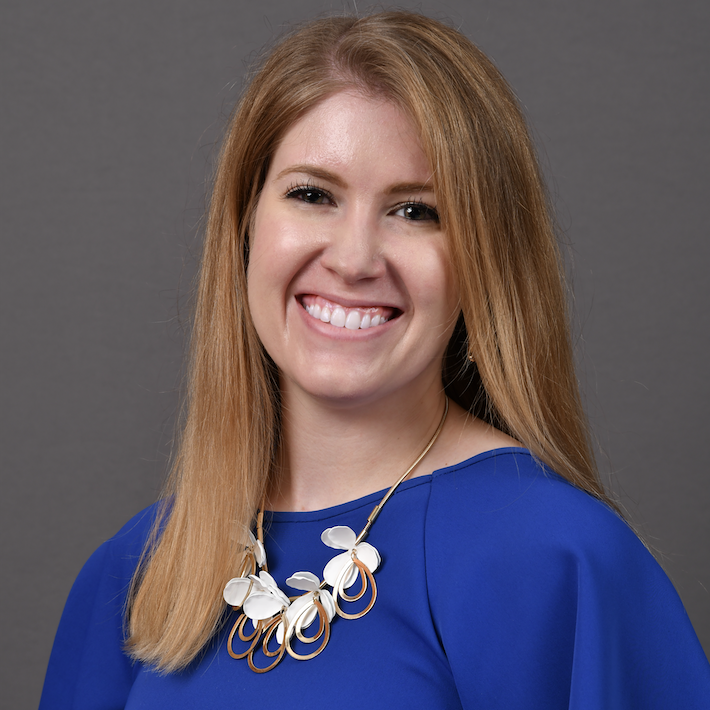 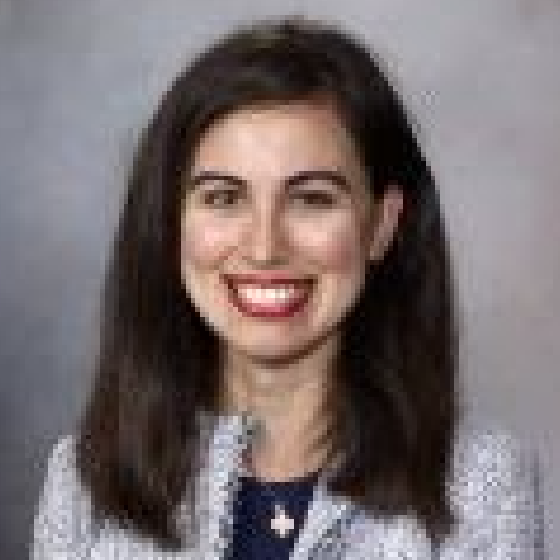 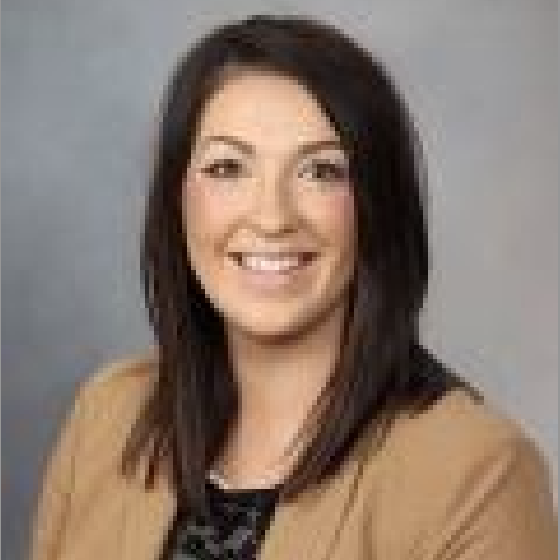
 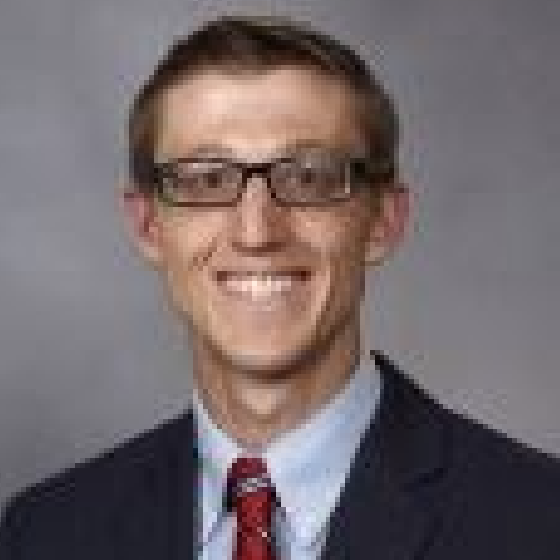 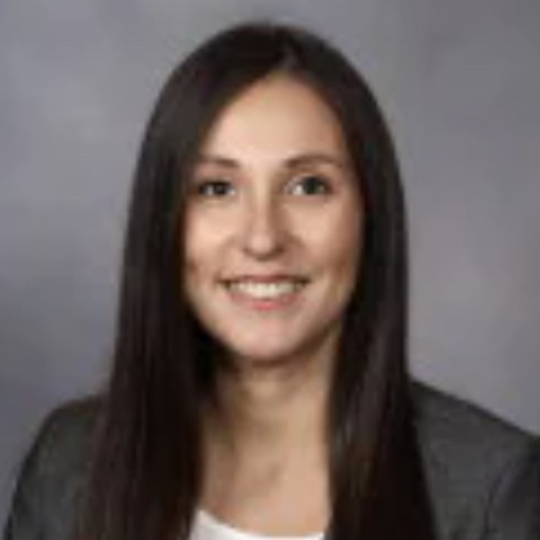
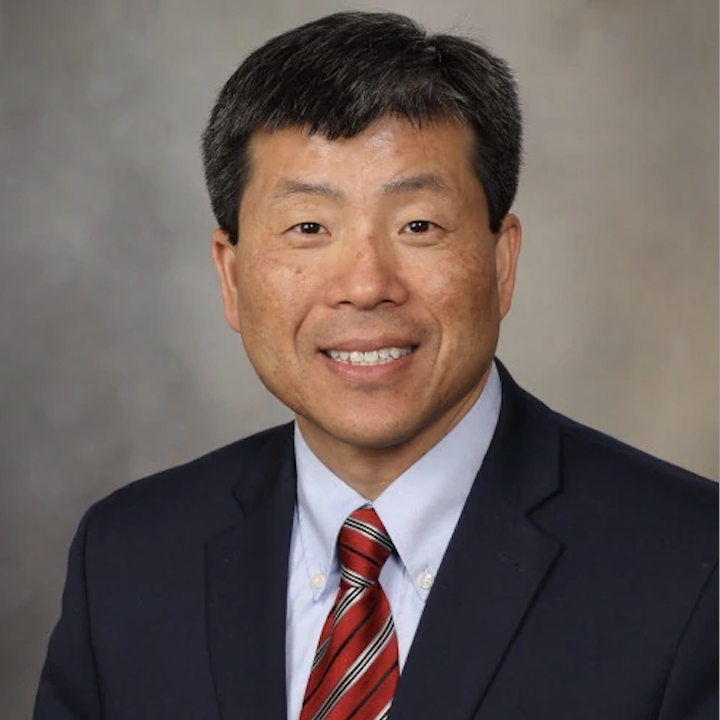 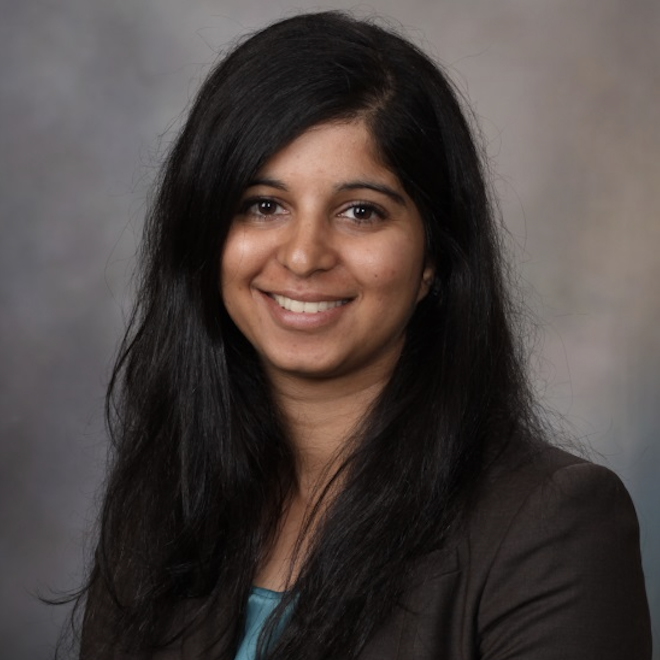 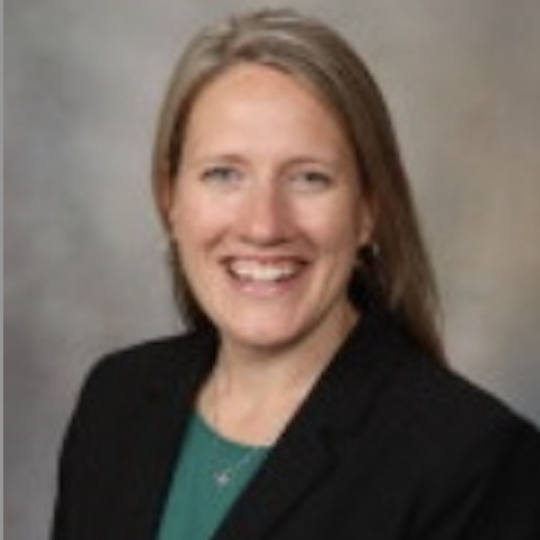
|
|
INTRODUCTION
The advent of the COVID-19 pandemic brought many unknowns to the field of medicine and the education of trainees. Similarly, the selection process for fellowship candidates was impacted when a working group representing three major medical societies recommended that “all programs commit to online interviews and virtual visits for all applicants, including local students, for the entire [2020-2021] cycle.”(1) Additionally, the group recommended that programs “commit to creating a robust digital environment and set of tools to yield the best experiences for programs and applicants.”(1) On May 15, 2020, the Association of Pulmonary and Critical Care Medicine Program Directors (APCCMPD) released a similar statement recommending an “all-in” approach to virtual interviews.(2) At the beginning of the 2020 interview cycle, we designed a digital interview experience, the Virtual Second Look Day, to ensure applicants a non-evaluative, multifaceted view of our fellowship program. We report the results of our first and second years piloting this program.
ABSTRACT PRESENTATION
For the 2020 and 2021 interview cycles, the interview day format included a pre-interview dinner with current fellows the night before and four faculty interviews, one of which was behavioral-based following an information session by the program director on the day of the interview. All interviewees in the combined pulmonary and critical care, pulmonary disease, and critical care medicine programs were offered an invitation to the virtual second look day consisting of various events (Figure 1). Attendance at the optional day had no bearing on applicant rank as the committee had finalized the program’s rank list; committee members were not involved in the day’s activities. Feedback was provided by an internal review committee consisting of the program leadership during the first year of implementation. Following the second year of implementation, attendees were surveyed to enhance feedback. During the first implementation year (2020), 28.4% of interviewees attended the Virtual Second Look Day. Feedback themes from our internal review consisted of technical difficulties, specifically in the audio and visual quality of digital rounding. During the 2021 interview cycle, 37.0% of interviewees attended the Virtual Second Look Day and were surveyed the day after the event. Fourteen applicants responded (51.9% response rate). Most fellowship applicants (71.4%) were not offered optional non-evaluative, virtual open house days or second look opportunities from other programs. All of the aspects of the day were regarded by applicants as being beneficial with greater than 70% positive response, with the exception of the “Tour of the Town” (only 69.2% believed to be beneficial). Forty-three percent of survey respondents did not attend the faculty panel as the last event of the day. Overall, 64.3% of those surveyed said that the experience improved the program’s position on the applicant’s rank list (Figure 2).
DISCUSSION
The second look experience is beneficial to the applicants by providing a unique view which allows the applicants to assess if they could thrive in the current culture of the program. Comments provided by those surveyed included that “the ICU rounds were very helpful because it allowed [the applicants] to picture [themselves] actually on rounds at Mayo which made it feel more familiar. Especially in this virtual environment, a feeling of familiarity is very important.” A tour of the facilities was suggested as an area of improvement.
CONCLUSION
The optional, virtual second look day has been a positive addition to our program’s interview season. As virtual interviews continue to be recommended by national organizations, fellowship programs will need to continue to build and consider refining digital experiences to produce the best alternative to the in-person interview experience for the applicants.
REFERENCES
- The Coalition for Physician Accountability's WorkGroup on Medical Students in the Class of 2021 Moving Across Institutions for Post Graduate Training. Final report and recommendations for medical education institutions of LCME-accredited, U.S. osteopathic, and non-U.S. medical school applicants. 2020. Accessed 14 May 2020.
- Lenz, Peter. “APCCMPD Interview Task Force Recommendations for 2021-2022 ...” APCCMPD Interview Task Force Recommendations for 2021-2022 Recruitment Cycle, APCCMPD, 15 May 2020.
|
| |
| Quality in Leadership: Utilizing Quality Improvement Training to Teach Leadership Principles |
|
Aanchal Kapoor, MD, MEd
Neal Chaisson, MD
Rendell Ashton, MD
Cleveland Clinic
|
 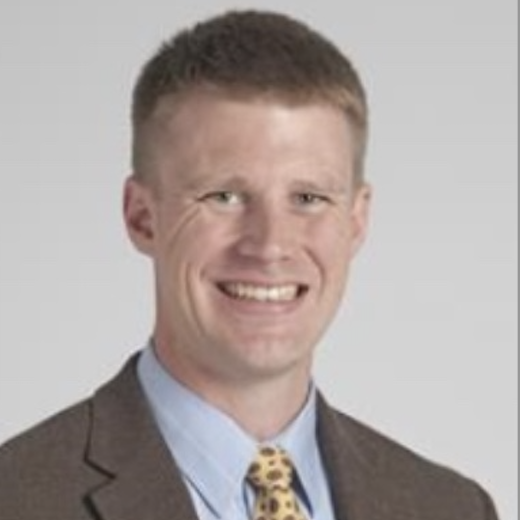 
|
|
INTRODUCTION
As health care systems move from volume-based to value-based care and emphasize quality as a part of the financial payment model, health care organizations are increasingly recognizing the value of physician leaders within the administrative hierarchy(1). To be effective in these roles, physicians require both strong leadership skills(2) and a fundamental understanding of Quality Improvement (QI) processes. The Accreditation Council for Graduate Medical Education (ACGME) mandates that PCCM and CCM fellows demonstrate leadership skills and receive QI training and experience. Despite this, formal leadership or QI training programs are underrepresented within existing fellowship training curricula. Recognizing this challenge, we developed a curriculum that teaches leadership skills through the lens of a quality improvement experience.
ABSTRACT PRESENTATION
We performed a focused needs assessment with several stakeholders in our institution. There was widespread agreement that leadership and QI skills training were essential to the fellowship experience. Both didactic and experiential components were recommended for any ensuing course. Goals and objectives were formulated based on review of relevant publications, internal and external course offerings, and consultation with leadership experts within the Cleveland Clinic. The leadership strategy revolved around a plan to maximize experiential learning, directly apply learned concepts to a multidisciplinary QI project, and provide mechanisms for frequent, targeted feedback. We promoted several preselected leadership behaviors and QI principles within the 5-month course. To do this, topic-based lectures, case discussions, videos, reading assignments, and reflective questions were employed. Groups applied learned concepts by participating in a QI project. Each QI project was selected by a team of four fellows. Teams recruited additional stakeholders to participate in the project. Teams were also assigned a leadership mentor and QI coach. The primary role of the leadership mentor was to provide psychomotor feedback to teams regarding their utilization of leadership behaviors. QI coaches met with teams weekly to provide assistance with the QI framework and to ensure project progress. Following the course, a mixed-methods approach was applied to evaluate whether the course met its intended objectives.
DISCUSSION
This program exemplifies a novel way to provide leadership development and QI training to physician trainees. Prior QI projects often involved trainees, but the role of trainees on the team was often superficial, lacked pedagogy, and virtually never included leadership development opportunities. Although our program met the intended objectives, we sought to improve it further. Using Stufflebeam’s CIPP evaluation model(3), we gained a better understanding of the strengths of our curriculum and received targeted feedback and suggestions for improvement to the program moving forward. Fellows reported that they learned foundational QI methodologies and had an opportunity to complete projects which were previously outside of their reach. Further, they reported increased confidence and skills to lead teams in ways that they did not previously appreciate. Opportunities for improvement included recommendations to enhance some didactic components of the leadership curriculum, to provide further concrete examples of leadership behaviors throughout the course, and to add structure to mentor feedback towards leadership behaviors. Tweaks to scheduling as well as interactions between the course and other components of the fellowship training were also recommended.
CONCLUSION
We identified that a formal approach to learning leadership and QI principles in an interprofessional environment can enhance QI engagement, understanding of core QI principles, and foster key leadership behaviors among fellows. The uniqueness of this course and its focus on applying adult learning constructs afforded us the opportunity to offer this course as a larger initiative to both fellows and staff within the Respiratory Institute starting in 2022.
REFERENCES
- Angood P, Birk S. The Value of Physician Leadership.; 2014.
- Künzle B, Kolbe M, Grote G. Ensuring patient safety through effective leadership behavior: A literature review. Saf Sci. 2010;48(1):1-17. doi:10.1016/j.ssci.2009.06.004
- Stufflebeam DL. The CIPP Model for Program Evaluation. In: Evaluation Models. Springer Netherlands; 1983:117-141. doi:10.1007/978-94-009-6669-7_7
|
| |
| ‘Prepare To Intubate’: A Novel Blended Approach to Airway Management for Fellows |
|
Asad Khan, MD
Ernest DiNino, MD
Fahad Alroumi, MD
University of Massachusetts Chan Medical School-Baystate
|
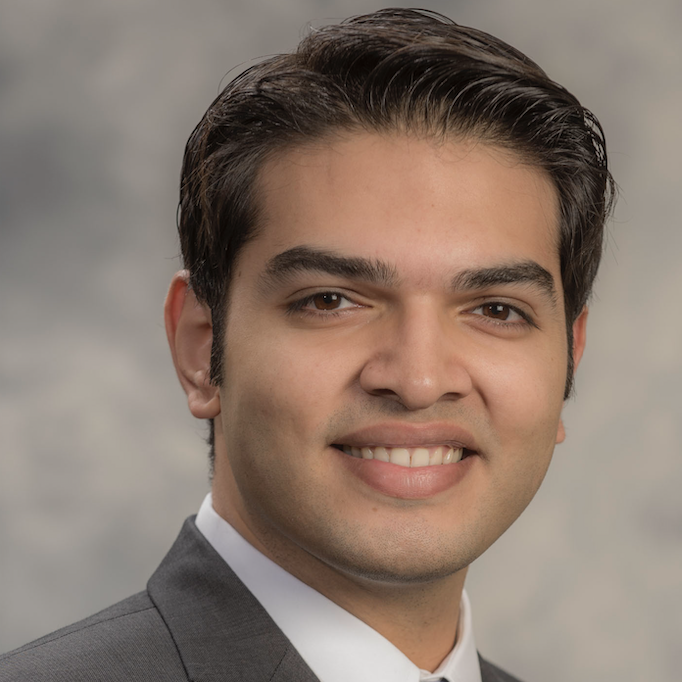 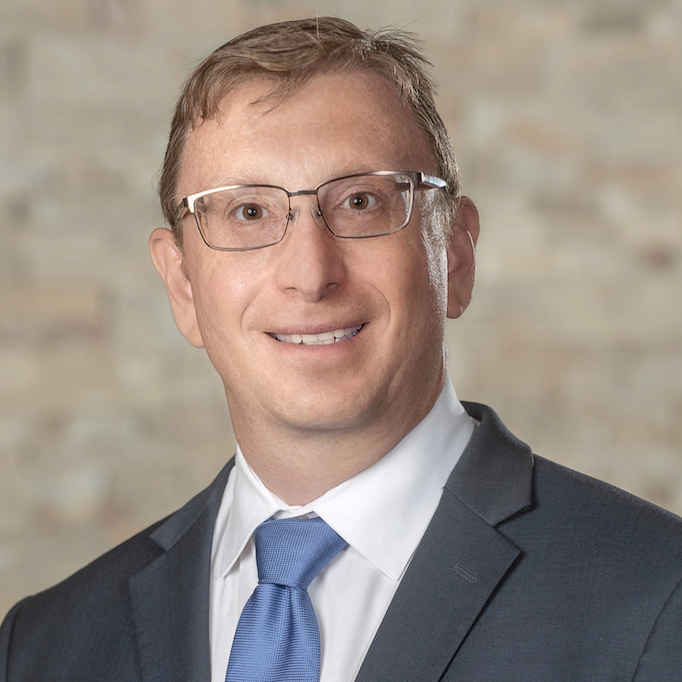 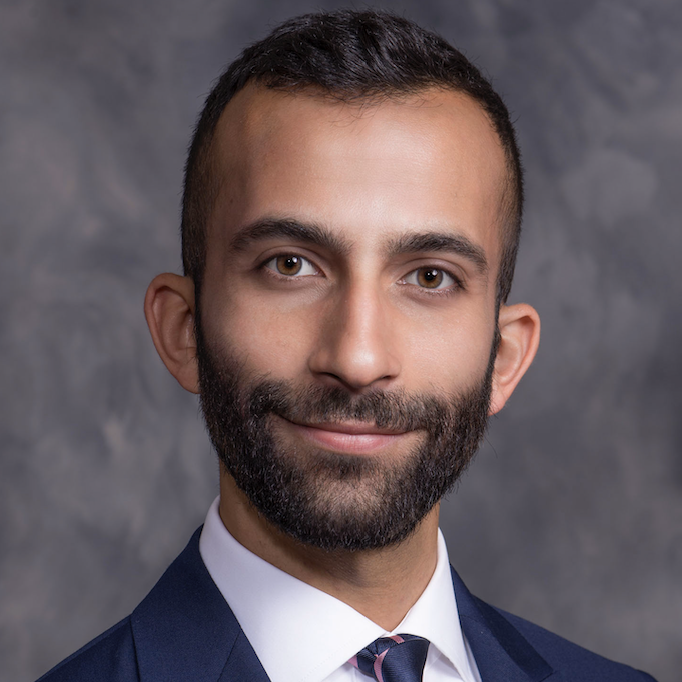
|
|
INTRODUCTION
Competency in airway management is an essential skill for critical care physicians, fundamentals of which are learned during fellowship. A great deal of heterogeneity exists in teaching endotracheal intubation (ETI) in pulmonary and critical care medicine (PCCM) fellowships(1). We implemented a novel combination of airway management theory through modules, followed by practical training in a variety of intubation techniques of varying difficulty.
ABSTRACT PRESENTATION
The fellowship program at University of Massachusetts Chan Medical School-Baystate comprises 14 fellows as part of our critical care (CC) and PCCM fellowships. Two faculty leads developed the ‘Prepare To Intubate’ curriculum. To meet the cognitive learning objectives, learners completed an interactive web-based module on the best practices of intubation in the critically ill patient. A pre-and post-test was developed by faculty with multidisciplinary input and was validated through iterative pilot testing before being shared with the fellows. The module was based on the demand driven learning model theory and contained brief lectures and interactive cases. These included a discussion of airway anatomy, recognition of the difficult airway, preparation for difficulties including contingency planning, medication administration, and the standardization of documentation. This was followed by a high-fidelity simulation session involving cadavers, led by faculty. Seven cadavers were used for the session, with each cadaver presenting a different level of airway difficulty based off body habitus, neck girth and expected Cormack-Lehane view. Fellows were taught how to evaluate airway difficulty, choose the appropriate method of intubation and then experienced hands-on learning. This included direct laryngoscopy with varying sizes of Macintosh and Miller blades, video laryngoscopy, fiberoptic intubation, the use of bougie devices and airway exchange catheters. Time-sensitive clinical scenarios were then incorporated by simulating ETI in commonly encountered ‘high-pressure’ situations in the intensive care unit (ICU). Fellows took turns being the primary operator whilst others assumed the roles of additional clinical staff, with faculty controlling the simulated patient’s vital signs. Fellows were asked to narrate their steps during intubation, including description of airway anatomy and when to pause to oxygenate. Rolling feedback was administered by faculty and senior fellows. Course feedback was taken in both verbal and written form.
DISCUSSION
Recent literature has demonstrated the existence of significant variation in PCCM fellows’ intubation practices across the country(2). Furthermore, whilst most critical care fellowships have some form of formal airway training, this too is extremely variable with no standardization in training. Our course is unique in several ways. ‘Prepare To Intubate’ combines a dedicated module that details the theory of airway management through validated teaching methods which precedes the practical portion–where the nuances of ETI can be practiced. The practical course allows fellows to explore different levels of difficulty with a variety of intubation modalities. Additionally, it addresses in detail an aspect of ETI that is often overlooked—airway exchange catheters and their appropriate use. Furthermore, the incorporation of time-sensitive scenarios allows fellows to experience performing ETI in high pressure situations whilst still being able to make mistakes and learn from errors in a controlled environment. With the COVID-19 pandemic unveiling the importance of airway proficiency in resource limited ICUs in a critically-ill patient population, training in controlled simulated environments provides fellows with crucial training. Future work will involve multi-institutional validation of ‘Prepare To Intubate’ and there is ongoing work to investigate how the course affects future first-pass success in ETI, number of attempts, learner confidence and satisfaction.
CONCLUSION
The use of cadavers is not unique to airway training and simulation(3). However, the innovation behind ‘Prepare To Intubate’ lies in the unique combination of structured theory and testing followed by practical airway management—a step towards standardizing airway management training for fellows.
REFERENCES
- Joffe AM, Liew EC, Olivar H, et al. A national survey of airway management training in United States internal medicine-based critical care fellowship programs. Respir Care. 2012;57(7):1084-1088. doi:10.4187/respcare.01540
- Brady AK, Brown W, Denson JL, et al. Variation in Intensive Care Unit Intubation Practices in Pulmonary Critical Care Medicine Fellowship. ATS Sch. 2020;1(4):395-405. doi:10.34197/ats-scholar.2020-0004oc
- Pedigo R, Tolles J, Watcha D, et al. Teaching Endotracheal Intubation Using a Cadaver Versus a Manikin-based Model: a Randomized Controlled Trial. West J Emerg Med. 2019;21(1):108-114. doi:10.5811/westjem.2019.10.44522
|
| |
| Fellows as Educators: Implementation of a Technology-Driven Teaching Scholars Curriculum Pilot |
|
E. Mirna Mohanraj, MD
Brandon Veremis, DDS
Alexander Davidovich, DO
Jonathan Stoever, MD
Paru Patrawalla, MD
Brijen Shah, MD
Icahn School of Medicine at Mount Sinai
|
 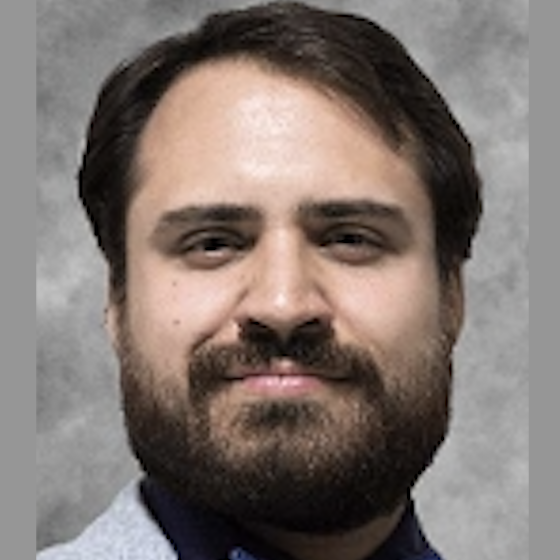 
 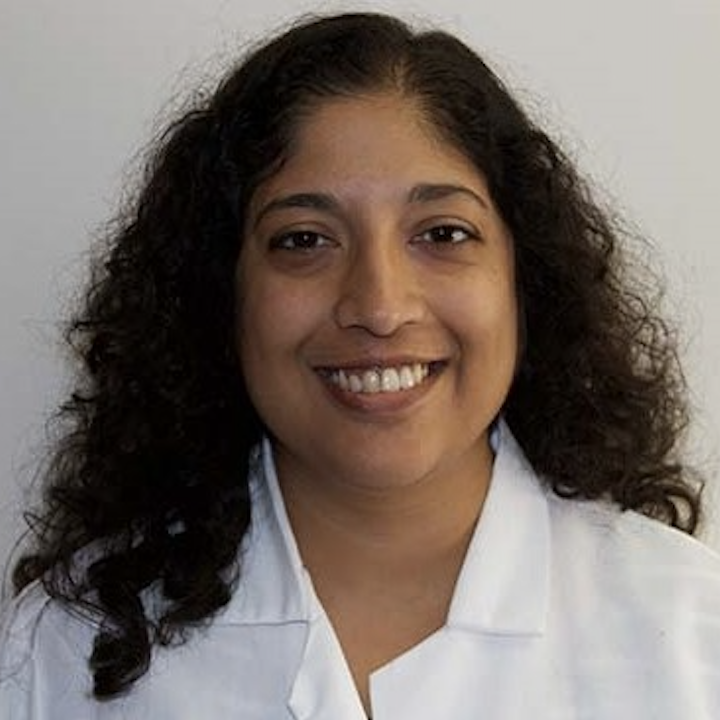 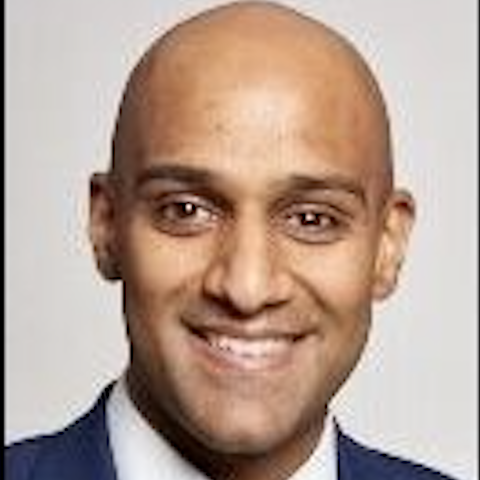
|
|
INTRODUCTION
Trainees who participate in a teaching scholars curriculum (TSC) may improve teaching skills(1) and scholarly productivity, and may jumpstart their clinician-educator careers(2-6). Integration of a TSC into a fellowship training program is feasible, but the few successful models rely heavily on in-person education. Utilizing digital education technologies(7) may improve instructor efficiency, self-directed learning, and knowledge/skill retention(8,9). We describe the development and implementation of a novel technology-driven TSC utilizing a blended learning model to prepare subspecialty fellows for careers as clinician-educators.
ABSTRACT PRESENTATION
IRB approval was obtained. We designed a 14-month foundational educator curriculum including teaching skills, curriculum development, and career advancement. A diverse, multidisciplinary faculty was recruited and paired with a ‘Tech Mentor’ to transform traditional content into asynchronous (75%) and virtual (25%) modules. Asynchronous modules were developed using Storyline 3® (Articulate Global, LLC). Interactive features including knowledge check-ins, in-module reflections, and choose-your-own education pathways were incorporated. Virtual modules and check-ins were conducted via video conference during afternoons or early evenings. Learners followed a monthly timeline for pre-work, module assignments, virtual check-ins, and surveys. Course materials were maintained in the Blackboard® learning management system (LMS) (Blackboard, Inc.). Learners provided batched feedback in quarterly semi-structured interviews; subsequent modules were accordingly tailored. Course directors and module faculty were available for virtual mentorship. Four pulmonary and critical care medicine fellows across three geographically distanced hospitals volunteered as pilot learners. One fellow was in their 3rd-year, and three were in their 2nd-year at the start of the program. Disruptions due to the COVID-19 pandemic led to scheduling delays. One module planned for asynchronous delivery was converted to a virtual format. Aggregated post-module survey data was strongly positive (Figure 1). Semi-structured interview data revealed that lower scores for “user-friendliness” were attributed to LMS challenges. Learner impressions from the semi-structured interviews were collated by Kirkpatrick levels (Table 1).
DISCUSSION
Subspecialty fellows educate a wide range of learners across varied clinical topics and education venues. We describe the successful implementation of a technology-driven TSC for fellows. The blended learning model allowed for flexible engagement of busy, geographically-distanced learners. Learner participation was robust and enhanced by the use of interactive in-module exercises, virtual check-ins, and self-paced completion of modules. The focus of this TSC pilot was on the development and delivery of a novel technology-driven course. The TSC was intentionally not paired with a primary medical education project. As such, the modules on curriculum development centered on theoretical application scenarios were perceived as less authentic by the learners. Learners rated all modules as highly valuable to their careers; however, truncating the course from 14 to 12 months would allow for more convenient delivery in the scope of the academic year. Modules imparting general educator skills may be delivered outside the TSC timeframe. Employing a more user-friendly LMS would enhance learner enjoyment. Learners will graduate from the TSC with knowledge, skills, and practical experience to launch their careers. Module faculty were not surveyed on their experience. Informal communications demonstrated their appreciation for the Tech Mentor role. To date, seven TSC faculty have newly-developed, interactive teaching modules suitable for standalone or in-course education. Development of these asynchronous modules will significantly reduce the labor for future TSC rollouts.
CONCLUSION
Our innovative, technology-driven TSC provided distanced and time-constrained subspecialty fellows with foundational education in the method and practice of teaching health care providers. This TSC may form the backbone for a Clinician-Educator Track within the confines of any training program. Programs lacking a breadth of clinician-cducator faculty may especially value the TSC to provide opportunities for self-paced learning that are scalable to the demands of clinical fellowship.
REFERENCES
- Staitieh BS, Saghafi R, Kempker JA, Schulman DA. Teaching a Hypothesis-driven Physical Diagnosis Curriculum to Pulmonary Fellows Improves Performance of First-Year Medical Students. Ann Am Thorac Soc. 2016;13(4):489–494.
- Adamson R, Goodman RB, Kritek P, Luks AM, Tonelli MR, Benditt J. Training the teachers. The clinician-educator track of the University of Washington Pulmonary and Critical Care Medicine Fellowship Program. Ann Am Thorac Soc. 2015;12:480–5.
- Chen HC, Wamsley MA, Azzam A, Julian K, Irby DM, O'Sullivan PS. The Health Professions Education Pathway: Preparing Students, Residents, and Fellows to Become Future Educators. Teach Learn Med. 2017;29(2):216–227.
- Roberts DH, Schwartzstein RM, Weinberger SE. Career development for the clinician–educator: optimizing impact and maximizing success. Ann Am Thorac Soc 2014;11:254–259.
- Eli M. Miloslavsky, Debra Boyer, Ariel S. Winn, Diane E. J. Stafford, Jakob I. McSparron. Fellows as Teachers: Raising the Educational Bar. Annals of the American Thoracic Society 13:4, 465-468.
- Miloslavsky EM, McSparron JI, Richards JB, Puig A, Sullivan AM. Teaching during consultation: factors affecting the resident–fellow teaching interaction. Med Educ 2015;49:717–730.
- Prober CG1, Heath C. Lecture halls without lectures--a proposal for medical education. N Engl J Med. 2012 May 3;366(18):1657-9.
- Ruffini MF. (2012). Screencasting to Engage Learning. Educause.
- ECHO360. (2012). Blended Learning Technology: Connecting with the Online-All-theTime Student.
- Yardley S, Dornan T. Kirkpatrick levels and education “evidence.” Med Educ. 2012;46:97–106.
|
Achievement Awards
OUTSTANDING EDUCATOR AWARD
|
APCCMPD members work diligently to foster excellence in education through the training and mentoring of the next generation of educators in pulmonary, critical care, and/or pulmonary/critical care medicine. The annual aspirational Outstanding Educator Award recognizes clinicians who are exemplary clinician-educators. They have cultivated achievements for which peer medical educators can aspire. The recipient is chosen by their peers for demonstrating excellence in the development of future physicians by making significant, innovative, and/or cumulatively outstanding contributions to education in pulmonary and/or critical care medicine.
The APCCMPD honors the contributions of all 2022 nominees:
Carolyn M. D'Ambrosio, MD, MS
Associate Professor of Medicine
Yale University
|
Congratulations to the 2022 awardee:

James Frank, MD, MA
Professor of Medicine
University of California San Francisco
James Frank, MD, MA is a clinician-educator and professor of medicine at the University of California San Francisco where he focuses on medical education across undergraduate and graduate learners. He is a medical student coach in the UCSF School of Medicine Bridges Curriculum and directs the medical student critical care immersion experience and critical care acting internship. He has been the program director for the UCSF Pulmonary and Critical Care Fellowship Program for the past four years. His clinical roles include critical care medicine and co-leading the pulmonary embolism response team, and the neuromuscular respiratory clinic at the SFVA. He formerly ran a biomedical research program and has experience in training and mentoring physician-scientists. His current academic interests include education leadership, teaching quality improvement and communication skills, professional/personal coaching, and curriculum development and implementation.
|
MID-CAREER EDUCATOR AWARD
|
The Mid-Career Educator Award honors mid-career individuals who are actively engaged in enhancing the practice and profession of pulmonary, critical care, and/or pulmonary/critical care medicine through education. The medical educator selected for this award is actively making significant and innovative contributions to education in pulmonary and/or critical care medicine.
The APCCMPD honors the contributions of all 2022 nominees:
Anas Hadeh, MD
Program Director
Cleveland Clinic Florida
|
Congratulations to the 2022 awardee:

Bhavin Dalal, MBBS, MD
Associate Professor
Oakland University William Beaumont School of Medicine
Bhavin Dalal, MBBS, MD is currently working as a board-certified Pulmonary/Critical Care and Sleep Medicine physician at Beaumont Health, Michigan. He has served as a respiratory course co-director for Oakland University William Beaumont (OUWB) School of Medicine and is currently working as Program Director for Pulmonary/Critical Care Fellowship. He received the Teacher of the Year award for eight years in a row at Beaumont Health and the Clinical Educator Award from OUWB School of Medicine twice, along with the Golden Apple award.
He has contributed immensely as a member and leader for different national and international educational organizations, including the American College of Chest Physicians/ACCP (education committee, educator development subcommittee), American College of Graduate Medical Education/ACGME (Facilitator), American Board of Internal Medicine/ABIM (item writing task force), American College of Physicians/ACP (Capstone Projects Mentor), Alliance for Academic Internal Medicine/AAIM (ASP council member, ERAS filters task force, Ambassador, Competency-Based Education Taskforce) and Foundation for Advancement of International Medical Education and Research/FAIMER (Mentor and clinical educator for international candidates). To shape his passion as a clinician-educator, Dr. Dalal completed his Masters of Health Professional Education (MHPE, degree pending) from the University of Illinois (UIC, Chicago) and is currently working on his research project.
His clinical areas of interest include pulmonary vascular disorders, interstitial lung diseases, sepsis, and sleep-related breathing disorders. He has published numerous peer-reviewed articles, abstracts, and book chapters.
|
EMERGING EDUCATOR AWARD
|
The Emerging Educator Award honors up-and-coming medical educators for their work in delivering and promoting medical education in pulmonary, critical care, and/or pulmonary/critical care medicine through various means at the local and regional levels.
The APCCMPD honors the contributions of all 2022 nominees:
Shari Brosnahan, MD
Assistant Professor of Medicine
New York University Grossman School of Medicine
Briana E. DiSilvio, MD
Associate Program Director
Allegheny Health Network
Van K. Holden, MD
Assistant Professor of Medicine
University of Maryland School of Medicine
|
Congratulations to the 2022 awardees:

Diana Kelm, MD
Assistant Professor of Medicine
Mayo Clinic College of Medicine and Science
Diana Kelm, MD is a core faculty physician and clinician-educator in the Division of Pulmonary and Critical Care Medicine at Mayo Clinic Rochester and Assistant Professor of the Mayo Clinic College of Medicine. She is the Associate Program Director for the Pulmonary and Critical Care Medicine fellowship program.
Dr. Kelm is actively involved in both APCCMPD and ATS. She is part of the Education Committees for both organizations. For APCCMPD, she is a co-host for the Medical Scholar podcast and an Associate Editor of the blog. For ATS, she is the Vice-Chair of the Critical Care Core Curriculum and the Practical Skills subcommittees of the Education Committee. Currently, she oversees the Section of Medical Education’s webinars and will be the international conference programming chair next year. Additionally, she is the Chair of the ‘Project Leadership’ working group for the section which involves building up education research across the country for multisite collaborative projects.
She is also a medical education researcher with a focus on procedural training/supervision and interprofessional education. She has received several internal grants including the Catalyst in Advancing Academics, Education Science Career Development Award, and the Endowment for Education Research Award. She has 23 publications, many of which are 1st-author publications.
Dr. Kelm has received several teaching awards as a faculty member including the ATS Alison Clay Early Career Educator Award, the Mayo Clinic Outstanding Emerging Educator Award, and IM Residency Excellence in Teaching Award.
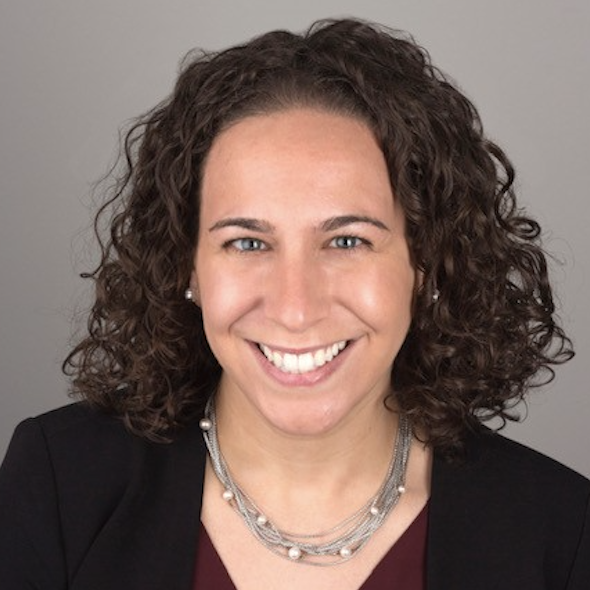
Morgan I. Soffler, MD
Assistant Professor
Beth Israel Deaconess Medical Center
Morgan I. Soffler, MD is Assistant Professor of Medicine at Harvard Medical School and a medical intensivist and pulmonologist at Beth Israel Deaconess Medical Center (BIDMC). Morgan obtained her medical degree from Tufts University School of Medicine and completed her Internal Medicine training at Yale New Haven Hospital in New Haven, Connecticut. During her time at Yale she realized her love for teaching and spent a year as a Chief Medical Resident. She completed her pulmonary and critical training at the combined Harvard program at Beth Israel Deaconess Medical Center and Massachusetts General Hospital, including a year of medical education research focus. In addition to her clinical work, she completed a fellowship at the Harvard Academy for medical education research and focuses her research on simulation-based medical education and simulation-based assessment. During fellowship she was honored to be a member of the APCCMPD Fellows’ Workgroup. She currently serves as the Director of Simulation Research at the Carl J. Shapiro Center for Medical Education and Research and has created a longitudinal fellow-level simulation curriculum through her role as Associate Program Director of the fellowship. Dr. Soffler has served as faculty for a number of CME courses and is an active member of the American Thoracic Society’s Training Committee as well as the Section on Medical Education.
|
Funding Awards
APCCMPD SCHOLARSHIP IN MEDICAL EDUCATION RESEARCH AWARD
|
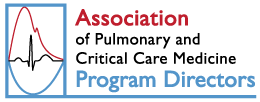
|
|
|
|
|
|
The APCCMPD Scholarship in Medical Education Research Award is a monetary grant awarded to Fellows-in-training, junior faculty within 5-years of program completion, Associate Program Directors and/or Program Directors, to fund research projects that further the field of pulmonary and critical care graduate medical education research.
The APCCMPD honors the contributions of all 2022 nominees:
J. Shirine Allam, MD
Emory University
Data-Driven Methods to Promote Diversity in Pulmonary and Critical Care Medicine Fellowship Admissions
Natalie Held, MD
University of Colorado School of Medicine
Understanding the Cognitive Load of Multidisciplinary Providers During ICU Rounds
Laura Hinkle, MD
Indiana University
Bridging the Gaps: Creation of a Didactic Critical Care Curriculum for Pulmonary and Critical Care Fellowship Training
Kathleen A. McAvoy, MD
Yale University
Improving Fellow Ambulatory Pulmonary Education with the Implementation of Ambulatory Blocks and a Comprehensive Outpatient Pulmonary Curriculum
E. Mirna Mohanraj, MD
Icahn School of Medicine at Mount Sinai
Fellows as Educators: A Technology-Driven Teaching Scholars Curriculum for Subspecialty Fellows
|
Congratulations to the 2022 awardee:
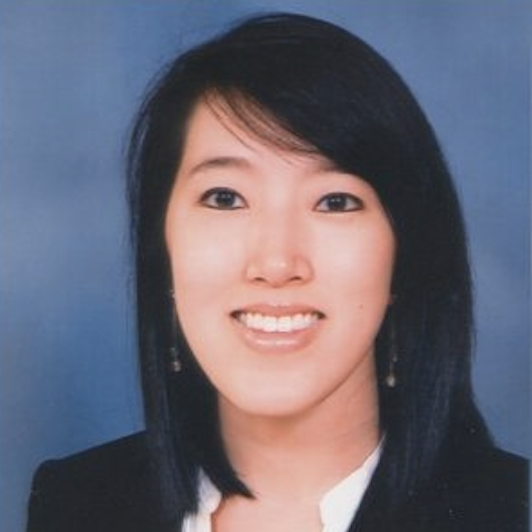
Erica Lin, MD
University of California San Diego
Integration of Succinct Video Podcasts into the Pulmonary and Critical Care Curriculum
Erica Lin, MD is an Associate Physician Diplomate and Health Sciences Assistant Clinical Professor in the Division of Pulmonary, Critical Care and Sleep at the University of California, San Diego with a dual appointment as Staff Physician in the VA San Diego Healthcare System (VASDHS). Dr. Lin completed her undergraduate training at Duke University, her medical school training at University of Alabama at Birmingham, her Internal Medicine residency training at Mayo Clinic, and her Pulmonary and Critical Care fellowship training at University of California San Diego. She was awarded the 2020 Fellows Teaching Award for her dedication to medical education. During her fellowship, she received a grant to develop, implement, and study a telesimulation curriculum for graduating medical students during the COVID-19 pandemic. As a junior faculty member, she serves as a co-director for the Foundations of Medicine course for first-year medical students and second-year pharmacy students. Dr. Lin has a long-standing interest in medical education and medical education research, focusing on curricular development and the use of technology in medical education.
PROJECT SUMMARY
Technological advancements are rapidly changing the face of medical education with asynchronous learning techniques gaining tremendous popularity over the past few years. As this paradigm shifts from the traditional to virtual classroom, it is essential for clinician educators to acknowledge the importance of e-Learning in medical education and adapt their teaching methodology to integrate this digitized content. Audio and/or video podcast is one example of this asynchronous learning medium and has been shown to improve knowledge and enhance learning. We hypothesize that augmenting medical education with audio-visual tools will improve learners' knowledge acquisition in a succinct format. For this awarded project, we aim to develop, implement, and evaluate whether a curriculum with audio and/or video podcasts could be easily integrated into a Pulmonary and Critical Care fellowship program in order to educate postgraduate students on basic outpatient Pulmonary and Critical Care Medicine topics.
|
CHEST FOUNDATION AND APCCMPD AWARD RESEARCH GRANT FOR MEDICAL EDUCATION
|
 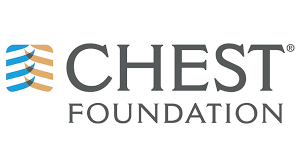 |
|
|
|
|
|
|
The CHEST Foundation and APCCMPD Award Research Grant for Medical Education is a monetary grant awarded jointly by the CHEST Foundation and the APCCMPD. Together, the CHEST Foundation and the APCCMPD are collaborating to advance graduate medical education and provide opportunities for scholarly activity that support medical educators in the field of adult pulmonary and/or critical care graduate medical education.
|
Congratulations to the 2021 awardee:
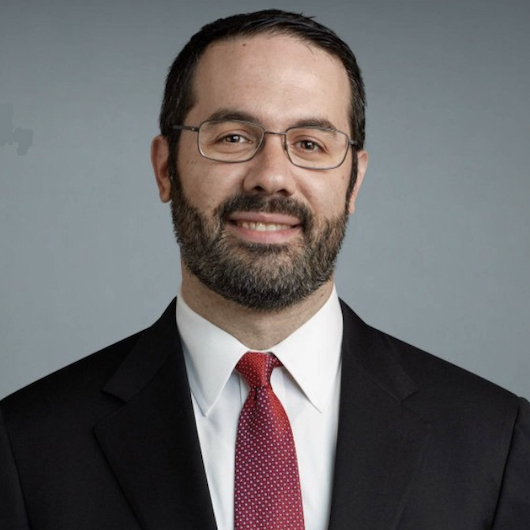
Mark H. Adelman, MD
New York University Grossman School of Medicine
Virtual Reality Simulation Training for Management of Tracheostomy Emergencies
Mark H. Adelman, MD is an Assistant Professor of Medicine at NYU Grossman School of Medicine and serves as a pulmonary-critical care attending at NYU Langone Hospital-Brooklyn, where he is also a Site Director and an Assistant Program Director for the NYU Pulmonary and Critical Care Medicine fellowship program. His teaching and research interests include the use of new technologies, such as virtual reality, in medical simulation and the use of objective structured clinical exams (OSCEs) for the assessment of communication and teaching skills.
PROJECT SUMMARY
Prior work in the field of airway management has demonstrated that non-expert clinical providers can feel ill-prepared to identify and manage tracheostomy-related emergencies in the first crucial minutes while awaiting arrival of more experienced backup. Guidelines and educational content with demonstrated effectiveness are available, but not in widespread use.
Novel methods of delivering educational content to meet the diverse needs of adult learners are needed. Virtual Reality Head Mounted Display (VR-HMD)-based simulation has reached a level of technological maturity that it may now be an effective option. More data is needed regarding how to provide that content effectively.
Our project will develop VR-based simulation content, followed by an assessment on a task trainer with a behavioral checklist and surveying our learners regarding their knowledge, attitudes, and practices. We believe we can positively impact their access to needed educational content in this area as well as their degree of comfort and performance of critical tasks in an emergency, while serving as a model of how to effectively implement similar programs in other healthcare educational settings.
|
|














































